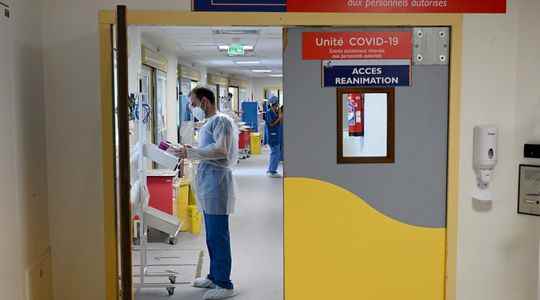This is the strongest increase observed for thirty years in France. Health expenditure reached 226.7 billion euros in 2021 according to a report by the Department of Research, Studies, Evaluation and Statistics (Drees) published on Thursday, September 15. The increase is spectacular: it reached 7.9% compared to 2020, when health had experienced a historic slowdown due to the very contrasting effects of the Covid-19 epidemic. On average, hospital-related expenses have grown by 3.5% each year since 1980.
Some health sectors, such as dental care, are enjoying a spectacular jump: +22.5% for gum and caries professionals. The “consumption of hospital care” also increased by 6.2%, explained by “a significant rebound in activity”, details the DREES. Above all, the year 2020 had been marked by a very sharp drop in expenditure, in the midst of a health crisis linked to the Covid-19 pandemic.
- A year 2020 in free fall
The year 2020 was that of the “fall in activity caused by health restriction measures”, indicates the statistical service of the social ministries. Indeed, the concerns raised by the increased circulation of the coronavirus and the postponement of many care procedures in order to mobilize the nursing staff in the resuscitation rooms have led to an exodus from dental practices or ophthalmologists, for example. This is also the case for biological analysis laboratories excluding PCR tests, which saw their consumption rebound (+9.5%), after having experienced a drop in 2020.
- Government action praised
In the eyes of the DREES, this increase in expenditure is also explained by the increase in wages recorded in the “Ségur de la santé”. The “100% health” reform, which allows full reimbursement of certain treatments, also seems to have given a boost, particularly in the area of hearing aids, the consumption of which has increased by 60%. The effect is just as noticeable on dental prostheses (nearly 40% increase) or for medical optics (+15.8%).
- What part supported by the State?
Of all these expenditures, the share covered by Social Security, already historically high, increased slightly to 79.8%. Complementary health insurance, whose reimbursements had decreased in 2020, also contributed more, up to 12.9%. However, the “residual charge” paid by households also increased, to 7%, or 15.8 billion euros. However, France remains the second OECD country, behind Luxembourg, where this rate is the lowest, notes the DREES.
